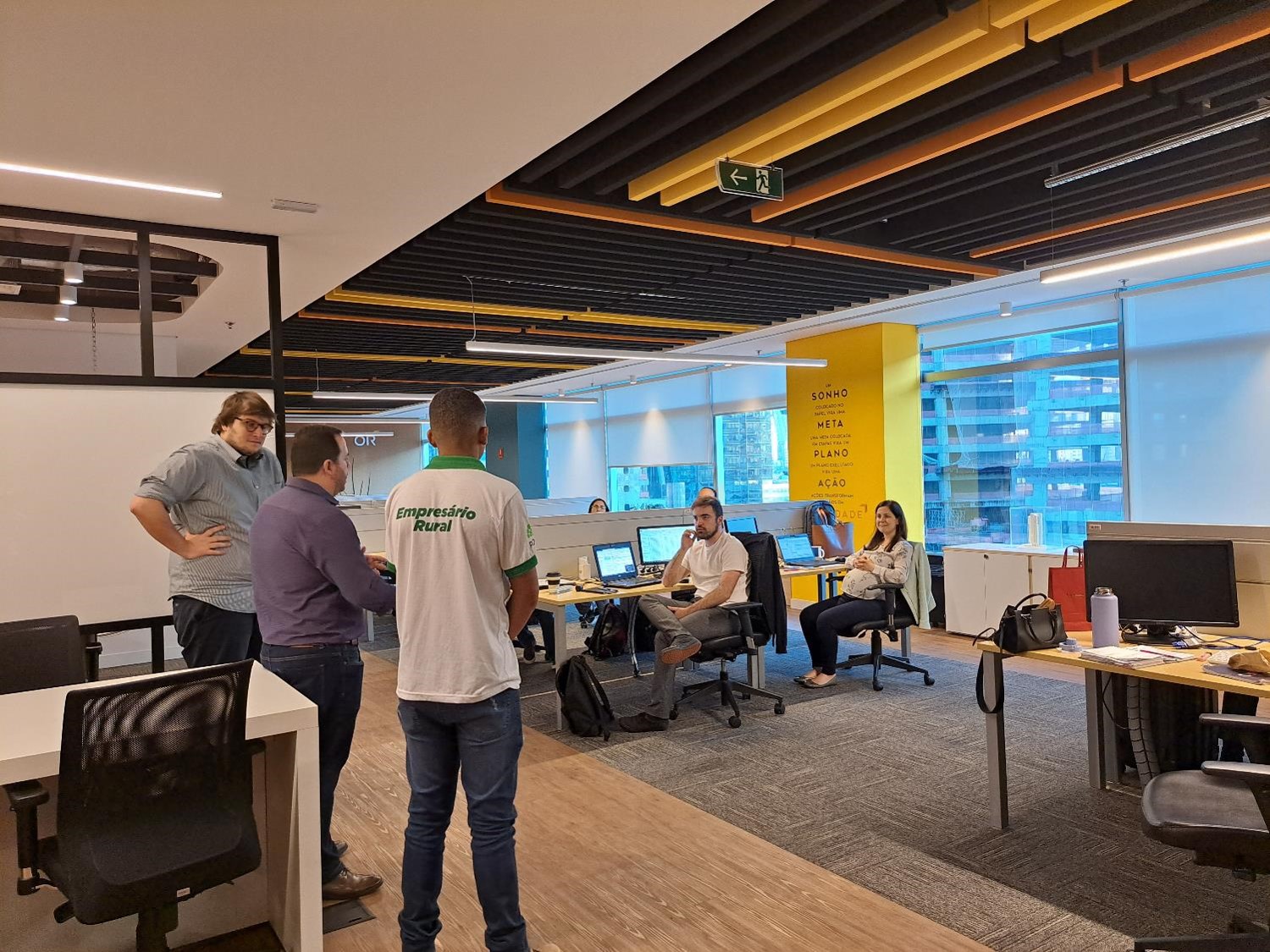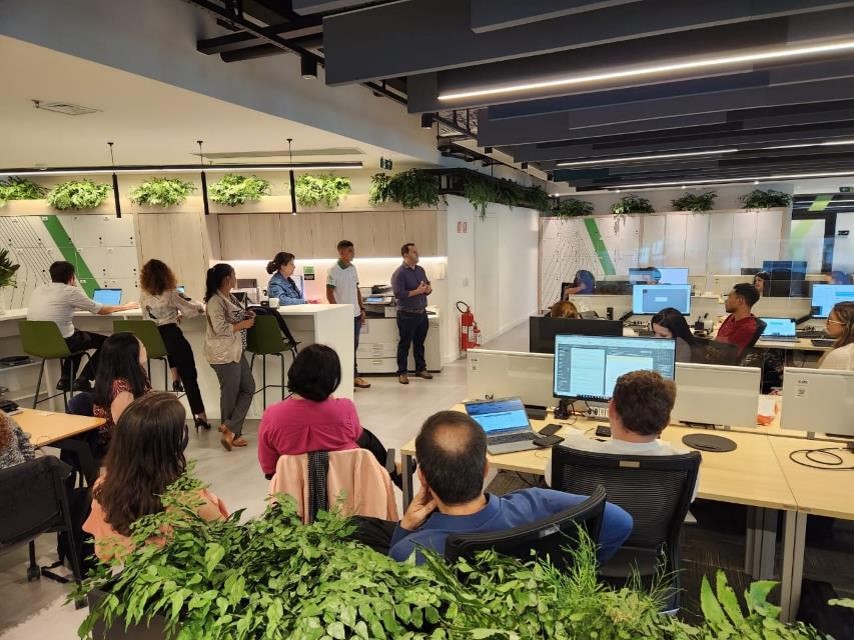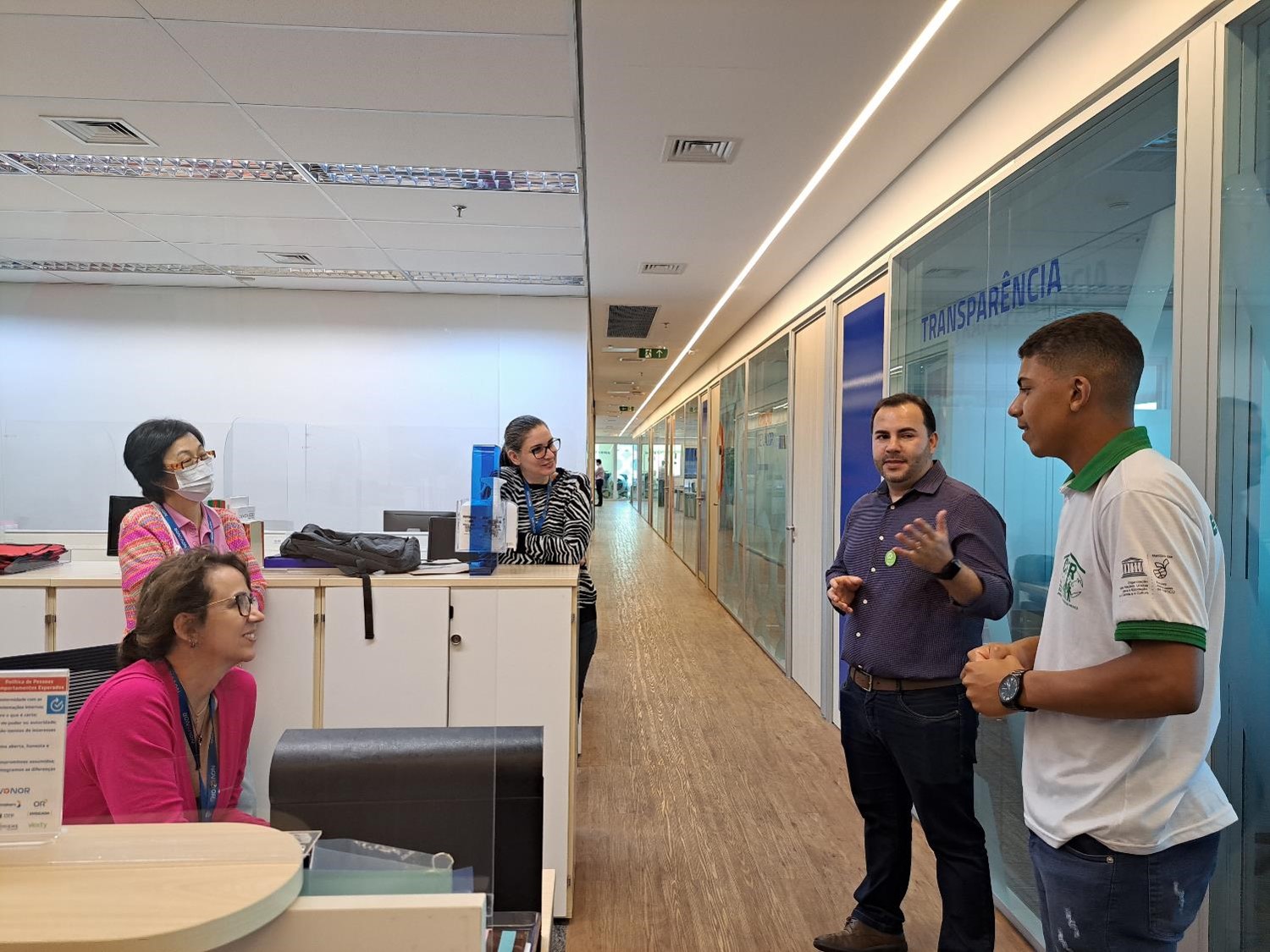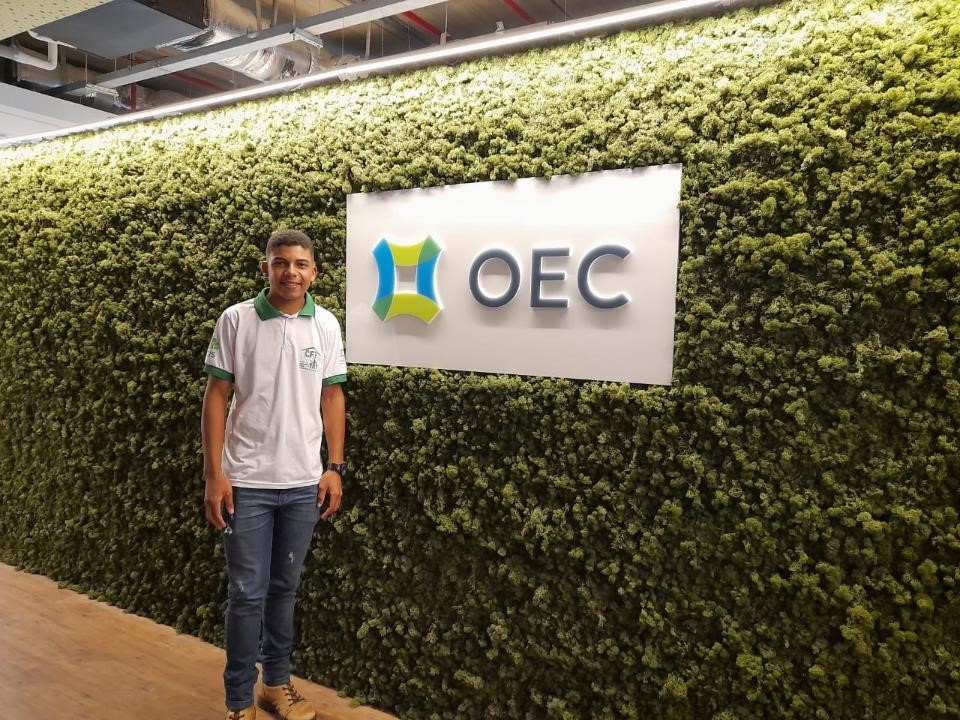On February 28, the final high-strength steel cable, known in engineering as a “stay cable,” was installed on the...
Tribute to the Future in action! Foundation visits Group offices
DATE: 10/27/2022
Last Wednesday, October 26, Adélcio Menezes, Partnership coordinator at the Norberto Odebrecht Foundation, and young Elismar Santana, a student at the Presidente Tancredo Neves Rural Family House, were at the OEC, Novonor, Horiens, Vexty, and OR offices in São Paulo in a face-to-face action of the Tribute to the Future campaign.
It was an opportunity to reinforce the Foundation’s initiative that collects donations for schools in rural Bahia, and to clarify and clear up doubts of the members about how they can donate.
The donation path
You can donate any sum at www.tributoaofuturo.com. Besides contributing to the education of teenagers, the campaign’s main goal, the donor can also obtain a tax benefit: if he declares his Income Tax in the complete form, he can deduct the amount donated in next year’s Annual Statement, reducing the tax payable or increasing the refund in 2023. To have the benefit, the donation must not exceed the limit of 6% of the taxpayer’s tax liability (click here to find out how much you can donate).
The funds raised by Tribute to the Future go to the Municipal Children and Teenage Funds (FIA) of the cities where the schools that carry out the projects are located: Igrapiuna, Nilo Peçanha, and Presidente Tancredo Neves, in Bahia’s Southern Lowlands region. The three supported teaching units are recognized by the Ministry of Education (MEC) and by the Bahia Secretariat of Education, and are part of UNESCO’s Associated Schools Program.
They are also partners of the Norberto Odebrecht Foundation in carrying out the PDCIS, a social program with proven impacts created in 2003 in the Bahia’s Southern Lowlands that strengthens family agriculture and youth leadership, respecting the communities’ vocation to leverage economic growth in harmony with the environment. Not until 2021, The social technology – available to be reapplied in other contexts of inequality – has benefited more than 26,000 people.







No comments